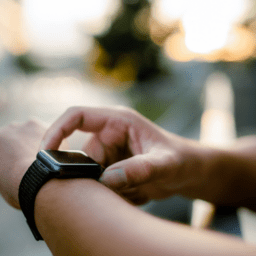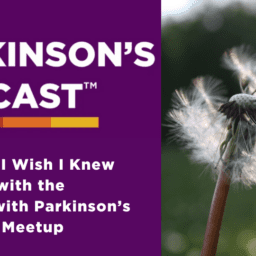Receiving a Parkinson’s diagnosis when you’re young is overwhelming enough. Being a woman with a Parkinson’s diagnosis adds an additional layer of complexities and challenges.
In this episode
In this panel discussion, our YOPD Women’s Council discusses sex, intimacy, love, dating, and all topics related to relationships.
To download the transcript, click here.
(Note: This isn’t a perfect transcript, but it’s close.)
Show Notes
- Communication is key to healthy relationships, especially when you’re living with Parkinson’s. A few tips from our Council on building effective communication in your relationship include:
- If you have not yet emotionally accepted your diagnosis, it may be difficult to establish healthy communication with your partner about your Parkinson’s. Once you have processed your diagnosis in your own way, you can begin to communicate clearly your needs and wants as they relate to your Parkinson’s
- Communicate clearly your expectations and preferences when it comes to asking for and receiving help. When Davis Phinney Foundation Ambassador Kat Hill was first diagnosed, she wrote all of her loved ones an email that stated she would ask for help when she needed it. As she says,
“That gives me my power to ask or not ask and them the freedom to not offer.”
- All the panelists agree that since receiving their Parkinson’s diagnoses, they understand the importance of having the right relationships in their lives. Not everyone in your life will have the capacity to support you in your journey with Parkinson’s, and it’s okay to let those relationships go
- As the intimate relationship between you and your partner changes because of aging, Parkinson’s symptoms, and/or other life changes, continue to communicate openly about your needs, get creative, and explore intimacy in new ways. If you are uncomfortable talking to your partner about these issues, speak with your doctor or a licensed sex therapist, who can offer suggestions or medications to help
- Relationships, in general, are hugely important in living well with Parkinson’s. They help you to feel supported and connected and help decrease anxiety and depression. In addition, developing a social circle and leaning on people other than just your partner can be beneficial for the health of your relationship. So, how can you build these relationships? Join (or start!) a support group, explore Parkinson’s workout classes, or meet up with a Davis Phinney Foundation Ambassador
additional resources
Intimacy and Parkinson’s with Sheila Silver
Maintaining Relationships with Davis Phinney
Social Capital and the Value of Relationships in Parkinson’s
Intimacy and Parkinson’s with Susan Imke
YOPD Women’s Council: Menstruation, Menopause, Hormones, and Parkinson’s
5 Reasons to Join or Start a Women’s Support Group
Thanks for Listening!
To share your thoughts:
- Leave a note in the comment section below.
- Ask a question by emailing us here.
- Share this show on Facebook.
To help out the show:
- Leave an honest review on iTunes. Your ratings and reviews really help, and we read each one.
- Subscribe on iTunes.
Listen & Subscribe
Apple Podcasts | Stitcher
*The Third Season of the Parkinson’s Podcast is made possible through generous support in honor of Dr. Margaret Hilgartner.

















